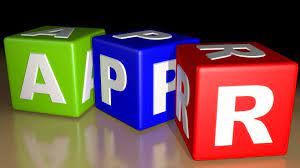The concept of a “prepayment penalty” is foreign to many homeowners. Why should you be penalized for repaying a debt ahead of schedule? That’s the thing with mortgage loans. Many of them, surprisingly, have prepayment penalties, which limit your flexibility and can eat into your pocketbook if you try to do the right thing for your finances. In this article, we shall go through all you need to know about prepayment penalty mortgage, how it works, and how to avoid it with no hassle.
What are Prepayment Penalties on Mortgages?
A prepayment penalty, sometimes known as a “prepay,” is a price paid to borrowers who pay off a loan within a few years after taking it out. Lenders often stop charging them after three to five years of loan repayment. Lenders apply these costs to discourage borrowers from paying off or refinancing their mortgages, which would result in a loss of interest income for the lender.
Prepayment penalties are prohibited under federal law for several forms of house loans, including FHA and USDA loans, as well as student loans. In other circumstances, lenders can charge early payoff penalties, although there are time and cost constraints imposed by federal law.
How a Prepayment Penalty Works
Few people can afford to repay a debt only a year or two after taking it out. Nonetheless, many people refinancing their loans to take advantage of a cheaper interest rate or to improve their credit. Prepayment penalties might make refinancing more expensive in the first few years after taking out a loan.
Prepayment penalties differ depending on the lender and loan type. Some lenders do not charge them; in others, they are limited. Prepays are only levied during the first few years of a loan, after which they phase away (typically within three to five years).
Prepayment penalties are only applied to certain types of loans, but they are always detailed in loan documentation, which is why it is critical to read disclosures before accepting a loan offer.
Why Do Lenders Charge Prepayment Penalties?
While prepaying a debt is almost always beneficial to the borrower, it is not always beneficial to the lender. When a borrower pays off a loan early, the lender loses months or years of interest that the lender would have otherwise collected on the loan.
Keep in mind that lenders make money by lending you money. The lender earns money from the interest you pay on your mortgage or loan. On the lender’s records, the outstanding principal is an asset.
As a result, some lenders impose prepayment penalties in order to prevent you from paying off your mortgage early. The longer you take to pay off your mortgage, the more interest the lender earns. To establish a deterrent to repay the entire loan debt early, the lender levies a prepayment penalty. For a mortgage lender, this discourages borrowers from refinancing their loans fast during periods of falling interest rates.
Types of prepayment penalties
Prepayment fines are classified as soft or hard.
#1. Soft prepayment penalties
A soft prepayment penalty is only applied when you refinance your house, and it is based on the language of an agreed percentage penalty in your mortgage loan paperwork.
#2. Hard prepayment penalties
When you sell or refinance your home, you will face a stiff penalty. A prepayment penalty may also apply if you attempt to pay off more than 20% of your loan debt in any one year. Making a few extra payments toward your principal or paying a little extra each month is frequently insufficient to avoid a prepayment penalty.
How Much Do Prepayment Penalties Cost?
Your lender’s ability to charge you prepayment penalties is limited.
Prepayment penalties cannot be more than 2% of the outstanding loan sum during the first two years of the loan, or more than 1% of the outstanding loan balance during the third year of the loan. The amount of prepayment penalties you will pay is determined by your lender. The exact amount may differ depending on the lender.
A sliding scale based on the length of your mortgage is one of the most prevalent techniques of applying a prepayment penalty. For example, if you pay off your mortgage in the first year, you may owe 2% of the loan’s outstanding principal sum. If you wait until the second year to pay off the loan, you may be subject to a penalty equal to 1% of the mortgage total.
Some lenders may simply select a percentage of the total loan balance as the prepayment penalty cost in all situations. Lenders may also impose a fixed penalty or a certain number of months’ interest.
Is Paying a Loan Prepayment Penalty Worth the Cost?
If you can afford to pay off a mortgage within the first year or two of borrowing—or refinance at a much cheaper rate—then simply paying the penalty may be helpful, since the amount of money saved in interest payments may much outweigh the cost of the penalty.
Yet, if you are unable to pay off the mortgage until prepayment penalties are almost totally phased out, it may be preferable to simply wait. The interest you continue to pay on your loan is tax-deductible, and the prepayment is only deductible if it is a business expense. Paying your penalty may still be worthwhile if you can refinance your loan at a much lower rate and save so much in interest that you’ll recoup the cost of your prepayment penalty within a few years.
Interpreting Your Mortgage Contract
You should, like with any financial deal, study the fine print. In this situation, you’ll want to find out if your mortgage contract contains a prepayment penalty clause and how to interpret the repercussions of triggering the fee.
How Do I Check For A Prepayment Clause?:
The good news is that lenders are required by law to disclose prepayment penalties, as well as monthly fees and other loan information. As previously stated, you should study the “fine print” – in this case, the loan estimate or the documentation that you’ll sign at closing, where it will be prominently included in the addendums and/or disclosure documents along with all the other terms of your mortgage loan.
It’s fine to ask your lender if they impose a prepayment penalty; if they do, ask them to show you where you may discover the information in the paperwork. If you already have a loan, you should be able to find it on your monthly billing statement.
Prepayment penalties are banned in some situations. These are some examples:
- Federal Housing Administration (FHA) loans
- Department of Veterans Affairs (VA) loans
- United States Department of Agriculture (USDA) loans
- Student loans or personal loans (Although these loans are not mortgages, they are nonetheless useful to know.)
Learn What Will And Won’t Trigger The Loan Prepayment Fee:
As previously stated, paying a few extra installments will not trigger the prepayment penalty cost. Nonetheless, there are situations when you should be aware that it will.
To begin, it is critical to understand that there are two types of prepayment penalties:
- A soft prepay penalty allows you to sell your house without incurring the penalty, so it would apply if you refinanced or paid down a large piece of the loan in the early years.
- A hard prepay penalty would apply in the aforementioned conditions, as well as if you sold the home.
Penalties are typically applied to the first few years of a loan since, as previously said, those are the riskiest for the lender. If you refinance early, you will incur the prepayment penalty. The cost amount will vary depending on the sort of mortgage penalty fee you have. As an example, consider the models shown above.
Be aware of the type of prepayment penalty that comes with your loan when you read through your Loan Estimate and contract, just in case something happens and you decide to refinance and/or sell. If you’re unclear, ask your mortgage lender before signing the papers to guide you through the calculations for your type of prepayment penalty, loan amount, amortization, and interest rate.
Prepayment Penalty Example
Assume Susan is a new homeowner who has just purchased her first home. To finance her purchase, she took up a $400,000 30-year mortgage at 4% with a prepayment clause. The condition calls for a sliding scale of early payment penalties for the first five years of her loan.
Susan’s credit score has improved two years after she took her loan, interest rates have dropped, and she wants to take advantage and refinance the $385,000 remaining on her loan. She finds another mortgage lender who will refinance her new loan at 3.25% for 15 years. Overall, refinancing will save her $325 a month, but she will have to pay a $5,775 prepayment penalty (or 1.5% of her outstanding loan debt) when she pays off her current loan.
Susan would recoup her penalty in a little more than two years (once closing fees are factored in) through savings from her new loan in this scenario. If she intends to stay in her home for at least three or four years, refinancing and paying the penalty may be a good idea. If she believes she will be moving within the next year or two, she should continue with her previous loan.
How can I Avoid Mortgage Prepayment Penalties?
Some lenders should be avoided if you wish to avoid prepayment penalties on your future mortgage deal. They include alternative lenders (usually online, non-bank lenders), subprime lending specialists, and lenders who offer speedy cash.
You should also avoid certain loan products in order to prevent being charged these fees. For example, it is better to avoid different loan products and instead stick to loans that can be obtained anywhere. If your lender tries to incorporate prepayment penalties, you’ll be in a stronger position to negotiate them away.
Another thing you can do to prevent prepayment penalties is to avoid frequent refinancing, which indicates to your lender that you’re more likely to refinance as soon as interest rates fall. You might also seek a co-signer or make a larger down payment in exchange for a longer loan term (including the elimination of a prepayment fee).
Finally, if you wish to avoid prepayment penalties, you can simply wait until they have been phased out before paying off or refinancing your loan. Alternatively, you can make permitted extra payments that are less than the maximum amount of your mortgage you can pay back each year without incurring early payoff fines.
Special Considerations
Prepayment penalties differ amongst lenders. This means that borrowers must be attentive in requesting and properly comprehending the prepayment disclosure paperwork prior to closing. Prepayment penalties might be fixed or calculated as a percentage of the remaining mortgage balance. They could also be graded on a sliding scale based on how long the mortgage has been in place.
Some lenders charge a penalty if you refinance or sell your property within the first two to three years of your original mortgage. Others levy a fee if the loan is paid off within the first five years.
How do I know if my Mortgage has a Prepayment Penalty?
Examine your monthly billing statement or coupon book to see if your loan contains a prepayment penalty. You can also review the documents you signed at the loan closing. Prepayment penalty clauses are often found in the promissory note or, in rare cases, in an addition to the note.
How is Prepayment Penalty Calculated?
It is calculated using the following terms:
- Your mortgage debt is still owed.
- Multiply your outstanding mortgage balance by your mortgage’s annual interest rate.
- To calculate the monthly interest payable, divide the answer by 12 months per year.
- Divide the result by three (months)
- Current mortgage interest rate
Why do Lenders have Prepayment Penalties?
Lenders utilize prepayment penalties to encourage borrowers to hold their loans for more than a year or two. When you pay off your loan over a longer period of time, such as with a 30-year mortgage, mortgage lenders and banks gain more money. This is due to the fact that interest accumulates over the life of a loan.
Is a Mortgage Prepayment Penalty Considered Interest?
You may have to pay a penalty if you pay off your mortgage early. If the penalty is not for a specific service or cost incurred in conjunction with your mortgage loan, you can deduct it as home mortgage interest.
Conclusion
Check to see if there is a penalty for early repayment of your mortgage loan before you choose one. You should also look into lenders who don’t levy prepayment penalties, such as Rocket Mortgage.
Related Articles
- Refinancing A Car Loan: Best Easy 2023 Guide & All You Should Know
- DEFEASANCE CLAUSE: Meaning And Overview
- CASHING OUT 401K: How It Works & What to Consider
- How To Break An Apartment Lease Without Penalty Legally
- FILING BACK TAXES: How Do I Manage My Back Taxes?
- TIME SHEET: How It Works, Template & Difference






